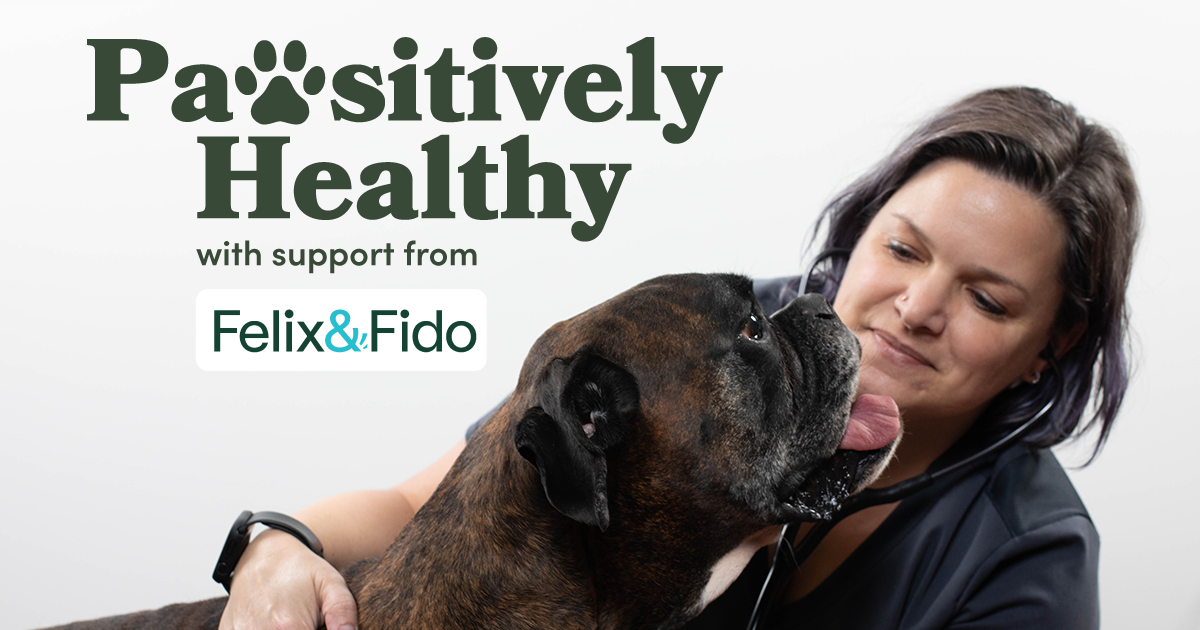
Humans have empathy for others in pain, especially animals, but do we know what pain looks like in our pets? Even though our household pets are no longer “wild,” they still retain survival instincts.
One of these instincts is to mask or hide pain. In nature, if they expose it, they often fall prey to other animals or might get left behind by their group.
Acute pain is harder to hide than chronic pain. For example, if a person has a headache, they may be able to get through the day with no one knowing. However, if they were to slam their hand in a door, everyone in the immediate area would probably know based on their reaction. The same is true for our pets.
I’ve had people tell me that their dog isn’t in pain; they just limp a little, but still seem really happy. The limp is a sign of pain, and yet I’ve rarely seen a dog with a slight limp turn down a walk. They just push through because… they’re dogs!
Cats are even harder to read when it comes to pain. Their coping strategy is moving less if something hurts or becoming withdrawn. This is often interpreted as lethargy or a behavior/mood change rather than pain.
Sometimes, the easiest way to determine if our pets are in pain is by addressing it to see if they feel better. If they seem brighter and happier when pain is treated, it means they were hurting and would benefit from a pain management plan.
Once we recognize pain in our pets, there are several options to help relieve it. A multi-modal approach is typically best. This means we confront pain from many different angles, which results in better pain control.
I consider anti-inflammatory medications to be the foundation of pain management since inflammation of tissues is what causes discomfort. Anti-inflammatory medications exist for both dogs and cats, and they’re often prescribed for mild to moderate pain.
It’s important to note that pets should not be given over-the-counter pain medications meant for people. Humans have different metabolic pathways to break down these drugs, and some drugs are very toxic to dogs and cats. If anti-inflammatory medication alone is not enough, which is often the case when surgical procedures are needed, we use additional pharmaceutical options like opioids, nerve blocks and others.
Some of these medications also have an anti-anxiety effect, which can help with healing, as anxiety has been proven to delay healing in people. Many pets come into the veterinary clinic with at least some anxiety about being there. Giving medication to calm them prior to their procedure is helpful both mentally and physically.
There are also non-pharmaceutical ways to treat pain like acupuncture and laser therapy. Both of these treatment modalities are incredibly safe and scientifically proven to be effective for pain relief and promote faster healing after injury.
Cats are a special case when talking about pain relief because their systems are more sensitive than dogs when it comes to traditional pain management options. There is a newer injectable medication called Solensia approved for arthritis in cats that is filling a pain management gap for the species. This treatment also shows promise for use in cases of cystitis (bladder inflammation and pain) as well as pancreatitis in cats.
If you think your pet may be in pain, talk to your veterinarian about options to help manage it. This will allow your pet to live a more comfortable and happier life.
My name is Dr. Heather Smith and I have been a small animal veterinarian in the greater Seattle area for 20 years. I am medical director and veterinarian for Felix&Fido – Issaquah. We are reinventing veterinary care by utilizing technology and leveraging the talents of our DVMs, LVTs and assistants in a way that supports and honors pets, pet parents and the veterinary care team. We look forward to serving you!
Felix&Fido Pet of the Month Photo Contest
Submit a photo of your pet for the chance to win Pet of the Month and a prize from Felix&Fido.





